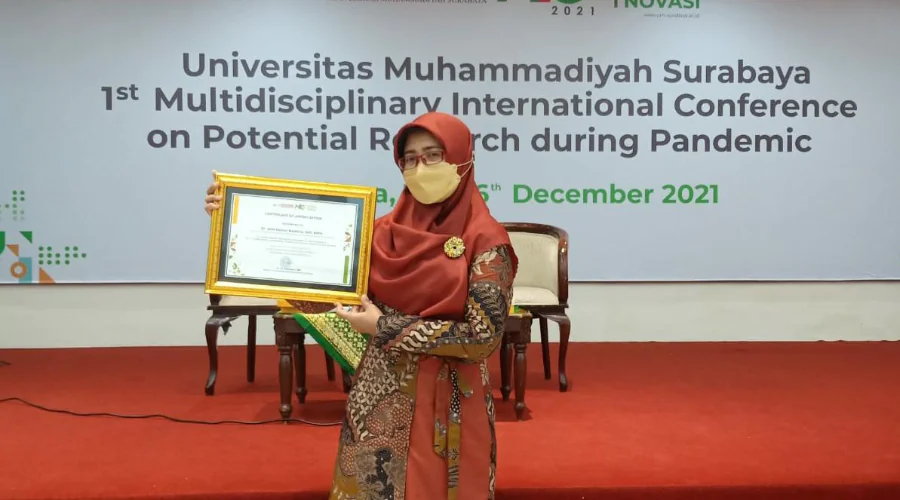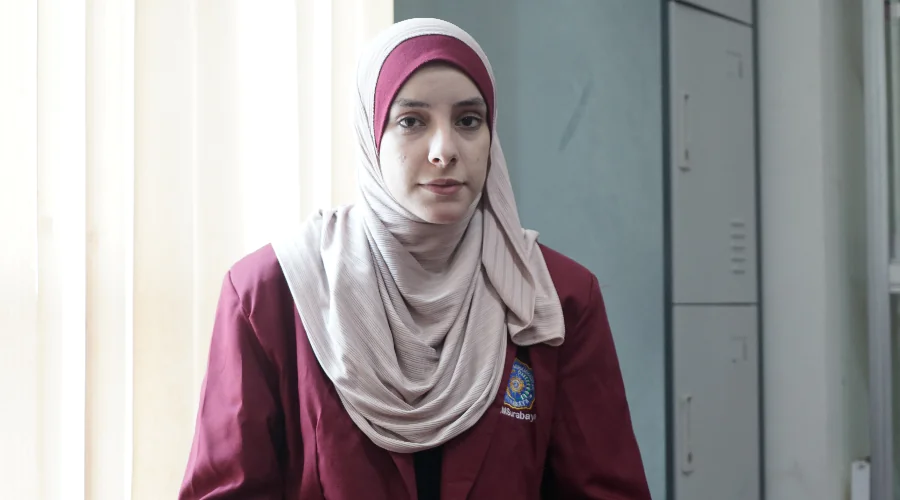
- 21 Dec
- 2021
Foto peneliti UM Surabaya A’im Matun Nadhiroh di acara MICon (Dokumentasi : A'im)
UM Surabaya Researchers Reveal the Importance of Screening for Early Detection of Cervical Cancer
The high rate of cervical cancer in Indonesian women causes a lot of anxiety. A'im Matun Nadhiroh, a lecturer in the Midwifery Study Program, Faculty of Health Sciences, University of Muhammadiyah Surabaya (UM Surabaya) explained that the condition of the Covid-19 pandemic had a significant impact on the cervical cancer screening program. The results of this research were presented in the agenda of the International Multidisciplinary Conference on Potential Research (MICon) Thursday (16/12/21)
A'im explained that one of the cancer diseases in women during a pandemic was cervical cancer. Cervical cancer is the second malignancy that occurs in the female genital organs and often occurs at reproductive age (15-44 years). Cervical cancer cases in the world are ranked number 3 most common in women, an estimated 569,847 new cases and 311,365 deaths with an 85-90% percentage, the majority of which occur in developing countries where resources are low or occur in people with low socioeconomic status.
A'im also emphasized the importance of early detection, because the development of cervical cancer from normal to precancerous lesions or cervical intraepithelial neoplasia (NIS) takes 5 years, from mild to moderate stages takes 3 years and from moderate to advanced stages. takes 7 years. One of the reasons for the delay in cervical cancer treatment is the limited access to screening and treatment, so that patients who come for treatment are already in an advanced stage and in critical condition.
“Cervical cancer is a condition that should not be taken lightly. Therefore, it is very important for women to detect this disease. The sooner it is detected and treated, the chances of curing cervical cancer will be higher. In addition, the risk of dangerous complications can also be avoided, this screening can be done through IVA and Pap Smear examinations," said A'im, a young doctor who graduated from Airlangga University.
A'im further explained that to avoid an increase in long-term cases of cervical cancer, it is recommended that all women of reproductive age continue to be screened with various recommendations. At least in his research there are 6 recommendations suggested. Less than 21 years no recommendation, Age 1-29 years Cytology screening every 3 years if the test results are >2 times in a row negative, Age 30-65 years Cytology screening and HPV test every 5 years, If only cytology is done every 3 years, age over 65 years should not be screened if screening results in the last 20 years were negative and there is no history of CIN, women who have undergone total hysterectomy and no history of CIN do not need to be screened, women who have had HPV vaccination are recommended according to age 21.










(0) Comments